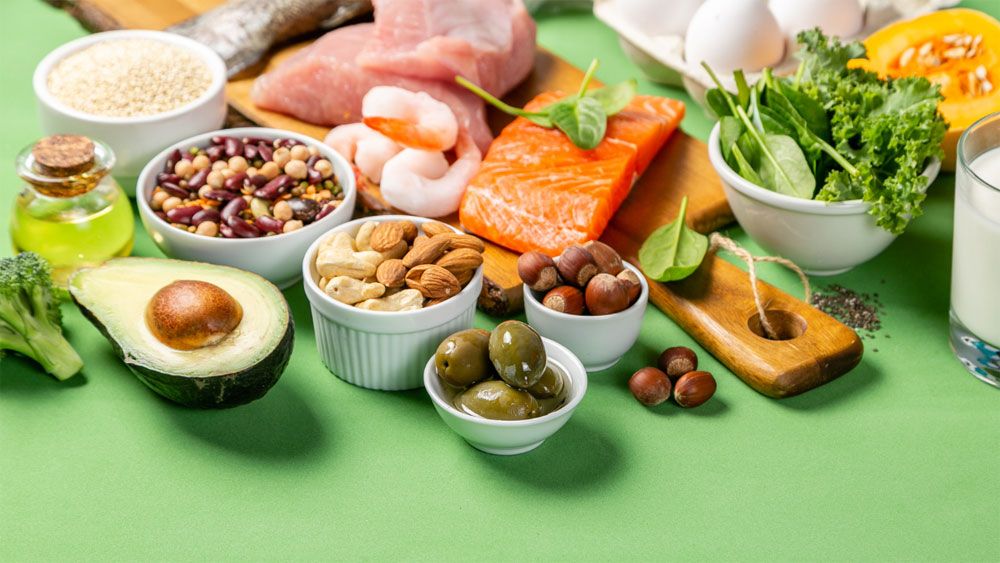The food you eat contains various amounts of macronutrients that are important for energy and many of your body functions.
Carbohydrates, protein and fat are called macronutrients. They are important nutrients for your body and used in the largest amounts. In addition to water, they help sustain important body functions.
Below is some important information about each of these macronutrients.
Carbohydrates – or carbs – are your body’s primary fuel. They provide energy for your muscles and your central nervous system during movement and exercise. Three common carbohydrates include:
- Simple: Simple sugars are found in refined and processed foods but also found in fruits.
- Complex: Starches are found in refined and processed foods but also in unrefined forms such as potatoes, fruits and vegetables.
- Grains: Refined grains, such as white flour and white rice, have been processed, which removes nutrients and fiber. But unrefined grains still contain these vitamins and minerals. They’re also rich in fiber, which helps your digestive system work well.
Protein is essential to many processes in the body. It provides structure to the tissue. That includes cell membranes, organs, muscle, hair, skin, nails, bones, tendons, ligaments and blood plasma. Your body cannot function properly without proteins and essential amino acids.
- Protein foods are broken down into parts called amino acids during digestion. The human body needs a number of amino acids in large enough amounts to maintain good health
- Amino acids are found in animal sources such as meats, milk, fish, and eggs. They are also found in plant sources such as soy, beans, legumes, nut butters, and some grains (such as wheat germ and quinoa). You do not need to eat animal products to get all the protein you need in your diet. Here is more information on the best protein choices for vegetarians.
- Amino acids are classified into three groups:
- Essential: cannot be made by the body, and must be supplied by food. They do not need to be eaten at every meal. The balance over the whole day is more important.
- Nonessential: are made by the body from essential amino acids or in the normal breakdown of proteins.
- Conditional: are made by the body from essential amino acids or in the normal breakdown of proteins.
Fat is vital for the body as an energy reserve, for insulation and protection of your organs. They are also necessary for absorption and transport of fat-soluble vitamins.
- The four types of fats have different chemical structures and physical properties. The “bad fats,” saturated and trans fats, tend to be more solid at room temperature (like butter). Monounsaturated and polyunsaturated fats tend to be more liquid (like canola oil).
- Fats can also have different effects on the cholesterol levels in your body. A diet with high saturated fats and trans fats raise bad cholesterol (LDL) levels in your blood.
- Eating an overall healthy dietary pattern that is higher in monounsaturated and polyunsaturated fats can lower bad cholesterol levels.
Click here if you want to learn about some of Dr. Patel’s favorite fats for cooking.
If you want to learn more about a nutrition plan that is right for you when it comes to losing weight or have any other questions, please reach out to us at Physician’s Premiere Weight & Wellness Center at https://healthymeweightloss.com/





